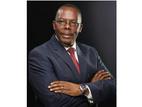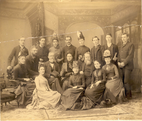Regarding the serious church debates about the radical right
Commentary
Berlin - How should one define the inflationary term "fascism"? It's a cause for concern that many in Germany's far-right "Alternative für Deutschland" (AfD) party don't know either. Recently, a Protestant pastor and AfD-member, let's call him "Pastor A", claimed that he would never vote for a fascist party. But he and others in the party whom I asked couldn't, or wouldn't, define the term.
What are the ingredients of fascism? I would describe them as racism, xenophobia, the preference for violence, warmongering, anti-semitism, eugenics, Social Darwinism, survival of the fittest, neo-paganism. National Socialism reflects all of these. But what about Mussolini or the clero-fascism of the 1930's? One thinks of Andrej Hlinka in Slovakia or Miklós Horthy in Hungary. Antonio Salazar remained the head of Portugal until 1968; Spain's Francisco Franco lasted until 1975. Horthy (1868-1957) is fully rehabilitated in today's Hungary. But in the German context, fascism can usually be defined as Nazism. The various degrees of fascism are prevalent elsewhere on the globe.
After AfD votes brought a new minister-president to power in the province of Thuringia on 6 February 2020, all other parties protested vehemently. Yet thousands of East European fascists - thanks in part to support from the Vatican - were able to lay low in North America and Australia after WWII. After 1990, they suddenly reappeared in full force back in their old home countries. According to the leftist paper "Junge Welt", (West) Germany spent more in four months on the anti-Stasi "BStU", its agency for "overcoming the GDR-dictatorship", than it spent in the course of 31 years for the "Central Office for the Resolution of Nazi Crimes" in Ludwigsburg.
The Ukrainian fascist and leading politician Andriy Parubiy is not only a friend of Canadian Prime Minister Justin Trudeau. Parubiy was also a featured speaker at the country's National Prayer Breakfast in Kiev in 2017 and 2019. A top-level delegation from the Baptist World Alliance and the European Baptist Federation visited him in Kiev on 3 October 2018 (see our release from 13 November 2018).
A friend claimed that today's AfD has suddenly made racism socially acceptable. Yet Christian-Democratic (CDU) election placards in the years from 1949 to 1953 depict wild, Asiatic "Russians". And was the "Block of Displaced and Disenfranchised" (BHE), which formed a coalition with the administration of Konrad Adenauer, less fascist than the current AfD? An assurance by its founder, Waldemar Kraft, from 1952, that his party "consists of former Nazis, but not of those who remain Nazis" reflects equally well the stance of today's AfD (see the German "Wikipedia").
The 2013-founded AfD consists of at least three factions: fascists, nationalist conservatives/propertied bourgeoisie and "peaceniks". It is much more than a gathering of tragically-misled, tattooed rowdies. It also features highly-learned intellectuals - a certain "Reverend B", for example.
The bourgeois faction - perhaps the majority - includes upper-level employees, civil servants and entrepreneurs stemming from the liberal "Free-Democratic Party" (FDP) and the CDU. This faction overlaps with positions of the German mainstream: It tends to be pro-Israel and pro-NATO, for big business and for toleration of both abortion and homosexuality. This AfD faction does not question the official Washington narrative on 9/11 - that Al-Qaeda carried out its crime without support from Israel or the USA. The AfD's bourgeois wing is different at least in that it rejects the theory of global warming.
Pastor A claims the AfD is nothing more than the right half of Helmut Kohl's old CDU. The AfD would be superfluous if Merkel's party were not centrist. This pastor exhibits the usual rightist reservations regarding a supposedly aggressive Islam. Yet Reverend B sees Germany's Muslims as potential allies in the struggle against Western decadence. Reverend B does not reflect fascist views. He struggles with an established, liberalistic mainstream calling the shots in church and state - which the nationalist conservatives in his party also do.
The Christian-Social (CSU) politician and peace activist Professor Rainer Rothfuss from Lindau transferred from the mainstream to the opposition in June 2018 by joining the AfD. He is a founder of the German-Russian friendship lobby "Drushba"; in January 2018 he was awarded the "Bautzen Peace Prize" along with the ex-Catholic theologian Eugen Drewermann. Rothfuss is himself apparently also an evangelical. This year's prize was awarded to the Swiss historian and lecturer Daniele Ganser on 29 January. Not everything politically to the right of today's ruling CDU/CSU can be disqualified as fascist.
The former communist editor Jürgen Elsässer heads the "Querfront" (Cross-Front), which struggles for rapprochement between the left and right. He's not the only AfD-associated leader attracted to the leftist East German politician Sahra Wagenknecht. In contrast to the AfD's middle-class majority, Elsässer hopes to gather all isolationist, anti-imperialistic, anti-global, anti-big business and anti-NATO forces. The comparison is far from perfect, but one thinks in this context of the "leftist" Nazis Otto and Gregor Strasser and their serenading of Germany's communists after 1925.
The Western mainstream criticizes Russia of two-facedness for relating both to Germany's rightists and leftists. Yet Russia may have no other choice when Germany's mainstream parties are falling in line behind the US' posture on Russia. At the demonstrations against NATO's massive "Defender 2020" maneuvers on the Russian and Belarusian borders, protesters from the left and right will be meeting again.
The blurring of historical boundaries
Since the fall of the Berlin Wall, a blurring and softening of traditional political boundaries has taken place. I read the "antiwar.com" website for several months before discovering that its makers were on the right. They are essentially traditionally conservative American isolationists. The site's founder, Justin Raimondo, was both conservative and gay. Is Ken Jebsen from Berlin's "KenTV" politically on the right or left? The same question could be addressed to Daniele Ganser, who rejects Washington's version of the of 9/11 events.
Based on his statements, the liberal US Democrat Adam Schiff, a major opponent of Donald Trump, could be described as a xenophobic warmonger. Have a look at his aversions regarding the people of Russia. But that in itself does not automatically qualify him as a fascist, for some other ingredients of that vile potion are missing. President Trump himself, if he indeed does qualify as fascist, is not a Nazi.
Conclusion: There are many degrees of fascism and the border between fascism and non-fascism is fluid. At what point does a fascist become a rightist conservative? Have fun sorting out this one!
Differentiation is important. We need a border, for a rightist conservatism needs to be tolerated - but not fascism. The necessary discernment is really only possible through dialogue. A rash and blanket demonization can only be counterproductive, for it is frequently based on false information. The affected do not feel they have been taken seriously. The status-quo is thereby only reinforced. The rightists are humans deserving serious attention.
Pastors in Germany's free, non-state churches are engaged in serious debates. Without any specific incident, a free-church congregation ruled that a retired pastor and AfD member would no longer be allowed to preach. This was deemed appropriate because a preacher of the Gospel needs to be politically neutral. Yet the party loyalties of a German pastor have rarely led to his/her exclusion. Otto Dibelius, the Lutheran/United bishop of Berlin and Brandenburg from 1945 until 1966, belonged to the radical right "DNVP" party in the 1920s. In 1945, he transitioned to the new CDU. The current chairman of the "Evangelical Church of Germany" (EKD), Heinrich Bedford-Strohm, is a member of the Social-Democratic SPD. Yet his membership is currently on-hold.
We should strive to convince the AfD's non-fascists of a better, more humane way. In what settings would a dialogue be possible? One cannot start out with missionary efforts. Stage one would entail becoming acquainted with the other side. "Combat the Beginnings" of the Weimar Republic - as it was in 1930. Debates must be carried out with words, not with fists or weaponry. Listening can only be a mutual, two-sided endeavor.
I'm against government coalitions with the AfD if it includes rightist extremists - Björn Höcke for ex., its party head in Thuringia. I assume the CDU will, after the passing of Angela Merkel as chancellor, move towards the AfD. They already have a joint "Union of Values" (Werte-Union). This proximity is nothing new: Forced to make a choice, Germany's conservatives will habitually choose rightist forces over leftist ones.
In case someone is wondering: I personally hail from the opposite, leftist (only moderately liberal) corner.
Originally from webpage "wyoder.de"
CCD reprinted with permission.








